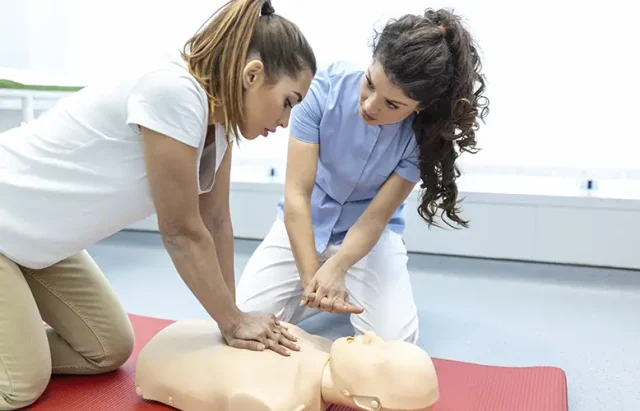
Traveling offers a unique chance to experience new cultures, savor different cuisines, and explore breathtaking landscapes. But while adventure is exciting, it often comes with unforeseen challenges. Travelers, whether venturing to a bustling city or a remote mountain village, should prioritize safety and preparation to make their journeys memorable for the right reasons.
The Value of Travel Preparedness
Preparation is more than packing the right clothing or booking accommodations in advance. It’s about anticipating potential risks and knowing how to respond when they arise. A small injury, sudden illness, or emergency can quickly turn an exciting adventure into a stressful situation if one is unprepared. By taking the time to learn safety protocols, travelers can protect themselves and those around them.
For instance, understanding local medical resources, carrying a first-aid kit, and knowing basic emergency procedures are practical steps every traveler should consider. These measures not only help prevent minor incidents from escalating but also provide peace of mind, allowing for a more relaxed and enjoyable travel experience. Furthermore, being prepared mentally for unexpected events helps travelers stay calm under pressure, making emergencies easier to manage.
Why a First Aid Certificate Can Be a Game Changer
One of the most practical ways to prepare for emergencies while traveling is obtaining a First Aid Certificate. This credential equips travelers with essential skills, such as CPR, wound care, and managing sudden illnesses. With this knowledge, travelers can respond confidently in emergencies, not only helping themselves but also assisting fellow travelers or locals in need.
Consider hiking in a remote area, kayaking in a river, or exploring a tropical destination far from hospitals. A traveler with first-aid training can provide immediate support while waiting for professional help, potentially making a critical difference in the outcome of an incident. Moreover, having this certification can enhance a traveler’s confidence and independence, knowing that they are equipped to handle unexpected situations safely.
Health Precautions for Global Adventures
While traveling is exciting, exposure to unfamiliar environments can also increase the risk of illness or injury. From altitude sickness in mountainous regions to foodborne illnesses in bustling markets, travelers face unique challenges depending on their destination. Preparing by researching local health advisories, carrying necessary medications, and understanding basic medical care protocols is essential.
A First Aid Certificate adds another layer of safety by empowering travelers to handle minor medical situations independently. Whether treating cuts, burns, or sprains, having this knowledge reduces reliance on local emergency services and allows for a quicker response. This preparation is especially valuable for solo travelers, families with children, or groups exploring areas with limited medical infrastructure.
Planning for the Unexpected
Traveling safely also involves planning for non-medical emergencies. From lost luggage to sudden weather changes, unexpected events can disrupt even the most carefully planned trips. Simple steps such as keeping digital copies of important documents, having travel insurance, and knowing emergency contacts in advance can save time and reduce stress. Combining these strategies with first-aid training ensures that travelers are prepared for both health-related and logistical emergencies, making the journey smoother and more enjoyable.
Beyond Safety: Enhancing the Travel Experience
Safety preparation does more than prevent mishaps—it enriches the travel experience. Travelers who feel confident about their ability to manage emergencies can focus more fully on enjoying their journey. They are more likely to explore off-the-beaten-path destinations, engage with locals, and participate in adventurous activities like snorkeling, climbing, or cycling.
Being trained in first aid also fosters a sense of responsibility and awareness, encouraging travelers to consider not only their own safety but also the well-being of others. This mindset can enhance group travel dynamics and contribute positively to the communities they visit, creating meaningful and memorable experiences that go beyond sightseeing.
Conclusion: Travel Smart, Travel Safe
Traveling is a rewarding adventure, but it requires thoughtful preparation to ensure a safe and enjoyable journey. From packing essentials to understanding local health risks, every precaution counts. Obtaining a First Aid Certificate is a practical step that equips travelers with crucial skills for managing emergencies effectively.
By combining preparation with curiosity and respect for local cultures, travelers can fully embrace the adventure without unnecessary risk. Prioritizing safety is not just about preventing accidents—it’s about empowering oneself to explore the world confidently, knowing that unexpected situations can be handled with skill and care.





